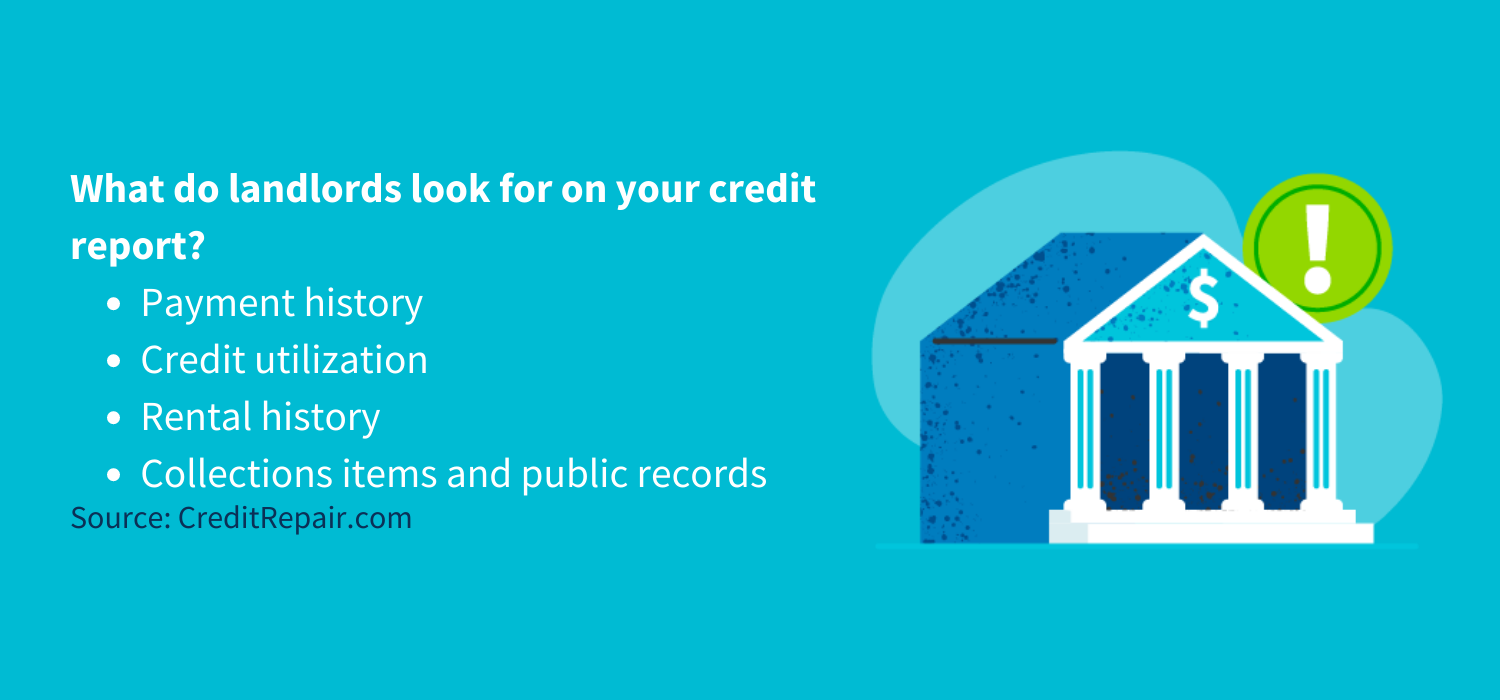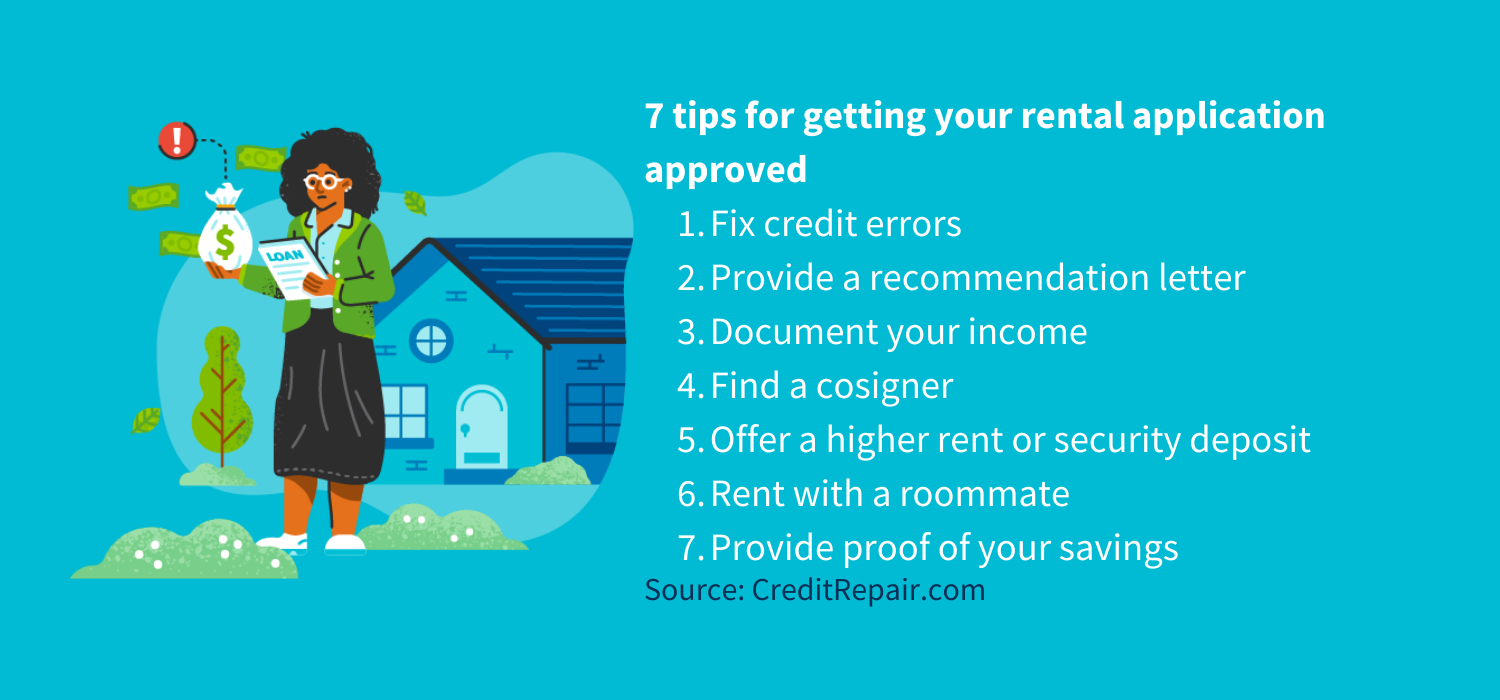
Disclosure regarding our editorial content standards.
If you’re looking to rent an apartment, your credit score might leave you feeling anxious. Landlords often run credit checks before approving new tenants, and what they find can significantly influence their decisions. Knowing what credit score is needed to rent an apartment gives you an edge. You’ll feel confident in your score and understand how to strengthen your application in ways that don’t involve your credit.
However, how credit scores can impact your apartment application can be a little bit complicated. Keep reading for a full breakdown of everything you need to know so you can feel fully prepared before you start applying for apartments.
What credit score do you need to rent an apartment?
Officially, there’s no minimum credit score to rent an apartment. While a higher score may improve your chances of approval, every landlord is different.
According to a study conducted by RentCafe, the average credit score for renters in 2020 was 638. However, scores varied based on factors like location and building style. High-end apartments had their own average of 669, while low-end apartments accepted scores as low as 597. Less competitive cities like Baltimore, Memphis and Indianapolis also accepted renters with scores below 600, while highly competitive cities like San Francisco, Boston, New York and Seattle expected renters to have a score above 700.
Do all landlords do credit checks?
Not all landlords require credit checks, but most typically do. You can specifically look for no-credit-check options if you’re worried about your credit score. However, note that these no-credit-check options might be of lower quality than others. It might be best to only turn to this option once you’ve tried applying at a couple places and it’s been confirmed that your credit score is too low for your area.
You’ll always know if a landlord checks your credit because they need your permission to do so. The application form will typically ask you to approve a credit check. Additionally, some apartments make the applicant pay for the cost of the credit check. This will also need to be clearly stated on the application form, including the cost of the credit check.
What do landlords look for on your credit report?

Landlords perform credit checks to see if the applicant is reliable and pays their creditors on time. In addition to pulling your credit score, a landlord may pull your credit report. Information on your credit report can help landlords get a complete picture. For example, one recent missed bill can send a person’s credit score down. A credit score wouldn’t give additional information, while a credit report would show that this was a one-time recent occurrence.
Some of the information a landlord will look at on a credit report is:
Payment history: Landlords will want to see that you don’t have a pattern of making late payments or missing payments entirely.
Credit utilization: An applicant maxed out on all their credit cards may be in financial trouble. Landlords will look for low credit utilization to indicate that a person isn’t in out-of-control debt.
Rental history: Some applicants will have rental history on their credit reports. A rental history void of late and missed payments will indicate an irresponsible tenant.
Collections items and public records: Collections and public records can include evictions, unpaid utility or other bills and bankruptcy. These can be a warning sign to landlords that someone is irresponsible with their accounts.
Note that another person accessing your credit report is usually considered a hard inquiry. You don’t want to allow too many landlords in a row to pull hard checks because it can cause your credit score to dip.
What other things do landlords check?
Landlords may also go beyond a credit check to screen applicants. It’s very common for landlords to check the following:
Employment history: Landlords will check to make sure you’ve been working at your company or within your industry for a while and verify that you currently have employment.
Criminal record check: Landlords may not want to accept individuals with a criminal record check, especially if it’s a high-end building or a building full of families.
Eviction history: Landlords may check if applicants have a history of being evicted. Individuals with an eviction history are very likely to be denied their application.
Social media: Some landlords may screen applicants on social media to make sure they don’t abuse drugs or have pets (if it’s a no-pet building).
Your credit isn’t the only thing that matters, so it might be fine if you don’t have a stellar credit score because you can make up for it in other areas. For example, someone who currently has a low credit score but has been working at a great company for several years and has no criminal record and no evictions may still be an enticing applicant for some landlords.
7 tips for getting your rental application approved
Everyone needs a place to live, but not everyone has perfect credit. If your credit score is under 638, you’re not out of luck. Follow these tips to give your application the help it needs to get approved.
1. Fix credit errors
Credit errors (like incorrect negative items) can bring down your score unnecessarily. Dispute these items and they might be removed from your report, which can improve your score. If they aren’t eliminated fast enough, you can explain to landlords that the dispute is in progress and your current score isn’t reflective of your responsibility as a tenant. Be sure to monitor your score regularly to catch any errors as soon as they come up.
2. Provide a recommendation letter
No matter how responsible you are, landlords have no insight into your personal history, leaving them to rely on your credit score to make assessments. A letter of recommendation can speak to your character and highlight your behavior as a tenant in the past. While a letter from a previous landlord is ideal, a letter from your employer can also make a difference.
3. Document your income
A thoroughly documented income can be just as powerful as a high credit score. A consistent income that’s grown over the past several years may prove to a landlord that you’re financially secure, especially if your score is low due to old mistakes that haven’t yet fallen off your report.
4. Find a cosigner
If you have a low credit score (or no credit score at all), one of the best ways to strengthen your application is to find a cosigner with good credit. Cosigners are outside parties who don’t live in the apartment with you but agree to cover the rent if you miss a payment. If you can find a cosigner you trust, they can provide a safety net that appeals to many landlords.
5. Offer a higher rent or security deposit
Offering to pay a higher rent or security deposit can help landlords overlook a low credit score. If your budget allows it, paying even $50 more per month can put your application above others in a competitive market—even if they have better credit.
6. Rent with a roommate
Renters often look for roommates as a way to lower their monthly payments, but roommates can also make up for low credit. Landlords often feel more comfortable renting to those with below-average credit if they’ll be splitting the rent because there’s less pressure on a single tenant to pay every month.
7. Provide proof of your savings
Even with low credit, proof of savings can show a landlord you’re financially responsible. A healthy savings account proves you’re capable of managing your money, and it shows you’ll be able to make rent even under unexpected circumstances.

Renting FAQs
Want to know more about your credit score when it comes to apartment renting? Here are some of the most frequently asked questions.
Do you have to have credit to rent an apartment?
Just as you can rent an apartment with low credit, you can also do so with no credit at all. While it’s always a good idea to build credit, you may not have had enough time to do so. Finding a roommate or cosigner with good credit can strengthen your application and get you into an apartment.
Can you build credit by renting?
Rent payments don’t automatically show up on your credit report. However, reporting your rent to credit bureaus through a rent-reporting service may demonstrate your creditworthiness. Some credit bureaus will use rent payments as a factor in determining your score, so you can strengthen your credit with every on-time payment. However, this only helps if the payments get reported.
Can you get an apartment with “poor” or “fair” credit?
The lowest credit score for apartment renters in 2020 was 580, according to the RentCafe study. But because all landlords have different preferences, it’s not impossible to get an apartment with poor or fair credit. Following the tips above, like offering higher monthly payments and fixing credit reporting errors, can prevent landlords from dismissing your application.
Why wasn’t your credit application accepted?
There are several reasons your credit application may have been denied, including:
According to the Fair Credit Reporting Act, landlords who deny your application based on screening, such as a credit report, are required to tell you why your application was denied through what’s known as an adverse action notice. Landlords must also provide the name and contact information of the company providing the report.
FYI, adverse action notices can also include:
If you get an adverse action notice, pay attention because it can provide information to help you how to get approved next time.
Simple ways to repair your credit
Looking to repair your credit? Follow these tips to improve your score before you apply for a lease to improve your odds of getting the apartment you want.
Make payments on time
The simplest way to strengthen your credit is to make on-time payments. Figuring out when to pay your bill and sticking to a plan each month will show creditors you can be a responsible cardholder. It can help to set up auto-pay features to automatically pay your rent so you’re never late on a payment.
Lower your utilization ratio
A credit utilization ratio is the amount of credit you’ve used compared to the total amount of credit available. A high ratio can lower your score, while a low credit utilization ratio demonstrates financial responsibility. Keep your ratio low and your score is likely to increase.
Partner with a credit repair service
A professional credit repair service can provide the knowledge and guidance you need to improve your credit score and help you rent the apartment you’re looking for. Companies like CreditRepair.com will analyze your credit, help you submit disputes and give you the tools you need to manage your credit long-term.
When it comes to improving your credit score to rent an apartment, you don’t have to navigate your credit alone. Get your free credit report evaluation today and start building a credit history that can help you secure the apartment of your dreams.
Note: The information provided on CreditRepair.com does not, and is not intended to, act as legal, financial or credit advice; instead, it is for general informational purposes only.
Questions about credit repair?
Chat with an expert: 1-800-255-0263






